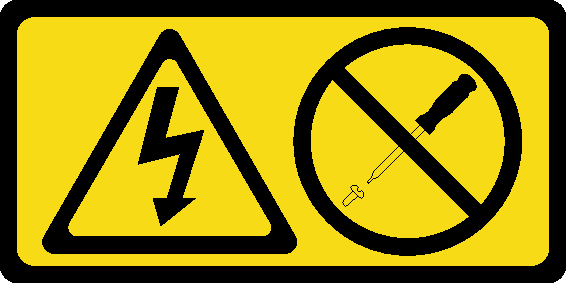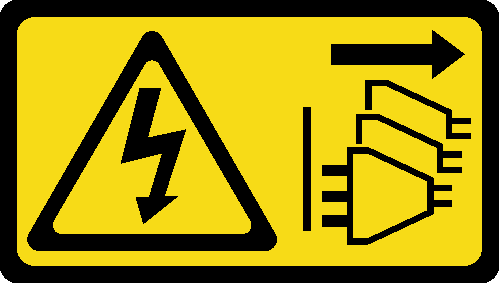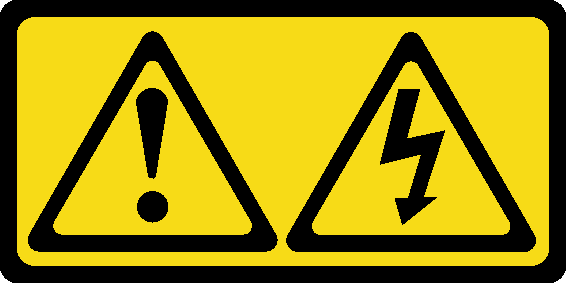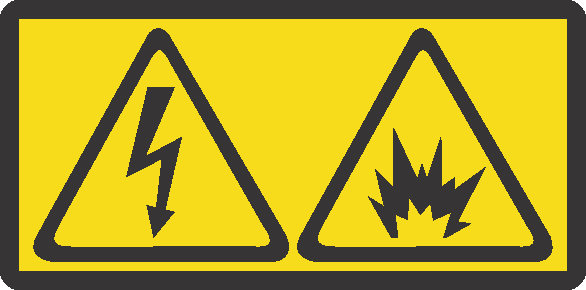Safety precautions
The section lists safety precautions that apply to AC and DC power supply units respectively. Understand and apply the safety precautions before removing or installing a power supply unit.
Safety precautions for AC power supplies
The following tips describe the information that you must consider when you replace an AC power supply.
S035  CAUTION Never remove the cover on a power supply or any part that has this label attached. Hazardous voltage, current, and energy levels are present inside any component that has this label attached. There are no serviceable parts inside these components. If you suspect a problem with one of these parts, contact a service technician. |
S002  CAUTION The power-control button on the device and the power switch on the power supply do not turn off the electrical current supplied to the device. The device also might have more than one power cord. To remove all electrical current from the device, ensure that all power cords are disconnected from the power source. |

To avoid a shock hazard:
- Connect all power cords to a properly wired and grounded electrical outlet/source.
- Connect any equipment that will be attached to this product to properly wired outlets/sources.
- When possible, use one hand only to connect or disconnect signal cables.
- Never turn on any equipment when there is evidence of fire, water, or structural damage.
- The device might have more than one power cord, to remove all electrical current from the device, ensure that all power cords are disconnected from the power source.
Safety precautions for DC power supplies
The following tips describe the information that you must consider when you replace a DC power supply.
CAUTION  240 V DC input (input range: 180-300 V) is supported in Chinese Mainland ONLY. Perform the following steps to safely remove the power cord of one 240 V DC power supply unit. Otherwise, there can be data loss and other damages to the equipment. Damages and losses resulting from inappropriate operations will not be covered by the manufacturer’s warranty.
|
S035  CAUTION Never remove the cover on a power supply or any part that has this label attached. Hazardous voltage, current, and energy levels are present inside any component that has this label attached. There are no serviceable parts inside these components. If you suspect a problem with one of these parts, contact a service technician. |
S019  CAUTION The power-control button on the device does not turn off the electrical current supplied to the device. The device also might have more than one connection to dc power. To remove all electrical current from the device, ensure that all connections to dc power are disconnected at the dc power input terminals. |

To avoid a shock hazard:
- To connect or disconnect -48V dc power cords when you need to remove/install redundancy power supply unit(s).
| To Connect: | To Disconnect: |
|---|---|
|
|